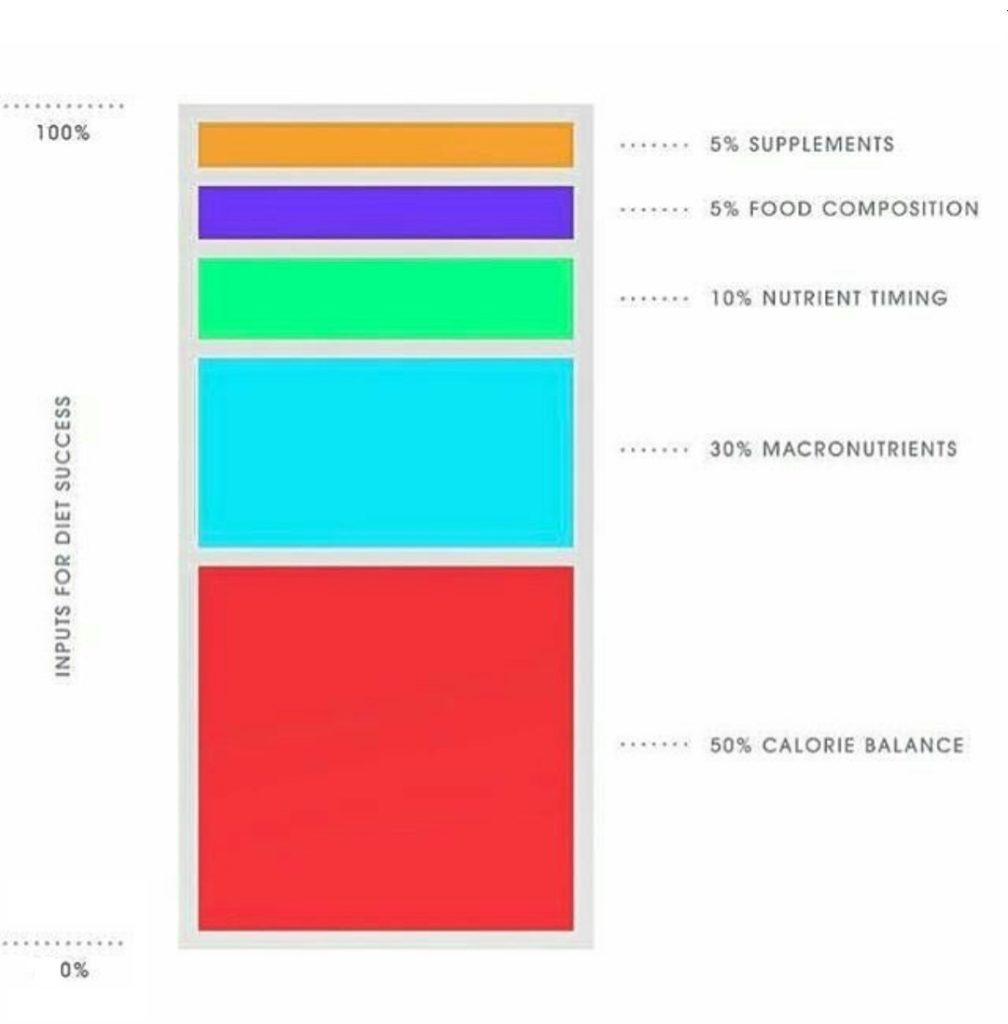Does Meal Timing Matter?
by Erik Castiglione
We’ve had a couple instances recently where members feel absolutely dead after a workout – lightheaded, dizzy, and lethargic. In a couple instances, this has led to near passing out. Peri-workout nutrition has therefore become a common subject. We’ve also had people set out on fat loss journeys, and inevitably meal timing becomes a topic of discussion. So, let’s get to it: does meal timing matter? As with most questions related to nutrition, fitness, health, and wellness, the answer is “it depends.” Does it matter for WHAT? When people ask about meal timing, they are typically concerned with one of a few things: fat loss, muscle gain, and athletic performance. So, let’s look at each.
Fat Loss
Does meal timing matter for fat loss? The short answer: NO. The main concern when it comes losing fat is total caloric intake. To lose fat, you MUST be in a caloric deficit. Other factors like hormones, etc., while important, only affect whether you’re in a deficit.
What about intermittent fasting? Isn’t that an effective tool for fat loss? It CAN be, if used properly. The idea behind intermittent fasting is to limit the window when you allow yourself to eat food. When done properly, it prevents most people from snacking all day long, thereby REDUCING CALORIC INTAKE. That being said, it’s only an effective strategy if you operate on a regular schedule. If your workout and work schedules change, trying to fast can increase your stress, which raises your cortisol levels, and can be counterproductive. Since we want fat loss to be as stress free as possible, focus first on caloric intake, whole foods, and getting enough protein.
Muscle Gain
Research from the early 2000’s was heavy into something called the “anabolic window.” Essentially, if you didn’t want to lose your workout #gainz, you needed to consume a fast digesting protein and carbohydrate within 30-45 minutes of finishing your workout. Post workout shakes became a thing, and the protein supplement industry exploded. Heck, every product on the market was labeled as “fast acting” or “fastest absorbed.” But, times have changed a bit.
As research has evolved, the new consensus is that the “anabolic window” is actually closer to 2 hours. If you can fit in a post workout meal within 2 hours of concluding your workout, you’ll have optimal results. Furthermore, the food doesn’t need to be fast absorbed. Starchy carbs and animal protein is perfectly fine; you don’t need to have a post WOD shake. And, if you can’t get something in your system within 2 hours, you won’t lose your results. Daily totals are still the most important thing. That being said, if you’re feeling absolutely crushed after a workout (like after “Chris Kyle”), you’re going to want to get some simple carbs into your system STAT. That feeling means that your glycogen stores are depleted, and you need some quickly absorbed sugars to feel right again. This is where a post WOD shake can help, but fruits or even a sugary candy can help, just ask our barbell club!
Athletic Performance
For fat loss and muscle gain, caloric intake is most important. No surprise here, the same is true for athletic performance. Second most important is macro nutrient balance. So, for your best performance, you need to make sure your daily needs are being met, and that you are adequately fueled for the workouts you’re going to be undertaking. For OPTIMAL performance, you need protein, carbohydrates, and fats. (While the ketogenic diet has gained some popularity in recent years, for the vast majority of people, it is NOT a high-performance diet. The “Supernova” study was just recreated with the same outcome: carbohydrates are superior to fats for athletic fuel.)
As far as timing goes, we care about it only to ensure that you have energy for your workout, and energy to recover from it. The optimal time for MOST people to eat is 1-2 hours before your workout, and 1-2 hours after, as we just covered above. If you’re one of our crazy 5amers, eating 1-2 hours before class is unrealistic. Instead, focus on carb loading your last meal of the day the night before. This holds true for anyone who works out first thing in the morning. While some people can get away with it, working out on an empty stomach can lead to feelings of nausea and cause you to “hit a wall” mid workout. If we’re maxing out, it can cause you to get lightheaded or even pass out. None of these things are conducive to good performance, so make sure you fuel up! Other than that, focus on hitting your daily caloric goal, eating quality foods, and making sure you get enough protein and carbs. Don’t sweat the timing until everything else is squared away.

